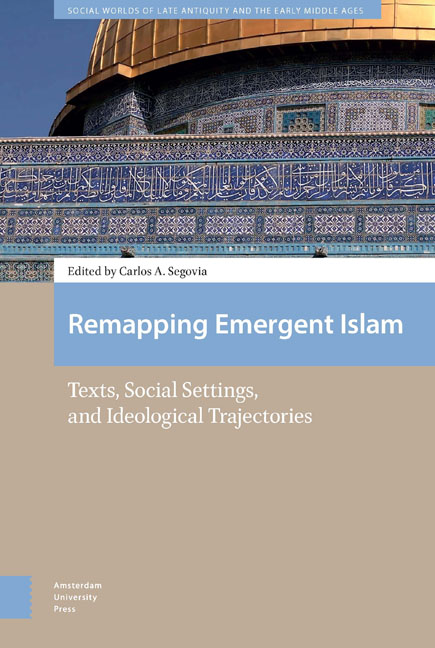Book contents
- Frontmatter
- Contents
- Introduction
- Part 1 Re-Assessing the Hypothesis of a Peripheral Jewish Background
- Part 2 An Encrypted Manichaean / Messalian Matrix?
- Part 3 Measuring the World’s Timeline… and Imagining the Afterlife at the Persian Court?
- Part 4 Conceptual Quicksand, Meta-Narratives of Identity, Texts and their Marginalia
7 - Divine Attributes of ‘Alī in Shi’ite Mysticism: New Remarks on ‘Heresy’ in Early Islam
Published online by Cambridge University Press: 24 November 2020
- Frontmatter
- Contents
- Introduction
- Part 1 Re-Assessing the Hypothesis of a Peripheral Jewish Background
- Part 2 An Encrypted Manichaean / Messalian Matrix?
- Part 3 Measuring the World’s Timeline… and Imagining the Afterlife at the Persian Court?
- Part 4 Conceptual Quicksand, Meta-Narratives of Identity, Texts and their Marginalia
Summary
Abstract
Mohammad Ali Amir-Moezzi examines the heresiographic sources, both Sunnite and so-called moderate-Shi’ite, that accuse the first Shi’ites of ideological ‘extremism’ due, firstly, to their alleged messianism, and, secondly, and somewhat complementarily, to their more-or-less-straightforward divinisation of their imām or ‘spiritual leader’. Considering that these accusations may well be to some extent reliable, how are we to envisage the connection that apparently existed between such doctrines and Muhammad's own early message, with its emphasis on the more-orless- imminent end of the world and its subsequent announcement of the coming of the Messiah, be he Jesus or ‘Alī?
Keywords: Late Antiquity, Early Islam, Shi’ism, Mysticism
From the earliest Shi’ite sources that have come down to us, ‘Alī b. Abī Ṭālib – cousin and son-in-law of the Prophet and, above all, the first imam and the father of all other imams – is presented as a theophanic figure, an exceptional man with divine attributes. The other imams of Shi’ism among his descendants are the heirs of these divine attributes, but in the hierarchy of saints par excellence of Shi’ism, ‘Alī undoubtedly retains a remarkable singularity. Shi’ite imamological doctrines in general, and within them the nature of the Imam, have always been the main charges of Sunnite heresiographers, who blame their Shi’ite opponents for applying to their guides, and to ‘Alī in particular, the same exaggeration (ghulū) as that practiced by Christians about Jesus. From the fourth / tenth century and the rationalist turn of the Twelver Shi’ism that brought to power the Baghdad School, the followers of this legal-theological current attributed these doctrines, which they now denounced, to their esoteric coreligionists, accused of same extremism or exaggeration.
In short, the proponents of the mysticism of the imam, called according to the times and the sources Ghulāt, Bātiniyya, or even Shiite Sufis – who can be added the followers of the movements like Nuṣayriyya / Alaouites, Druze, Bābā’īs, and other Messianic movements before and after the Mongol invasion, the Kurdish Ahl-i Ḥaqq / Yāresān, or the Turkish Bektashis and Alevis – will be considered by the Sunnite and Shi’ite ‘orthodoxies’ as the worst ‘heretics’ of Islam.
- Type
- Chapter
- Information
- Remapping Emergent IslamTexts, Social Settings, and Ideological Trajectories, pp. 177 - 202Publisher: Amsterdam University PressPrint publication year: 2020

